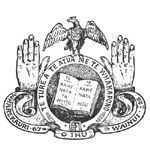
The New Rite of Exorcism: A Potent Weapon Is Weakened
LIBERA NOS A MALO
The Catholic Church has a gift that no other church, Christian or otherwise, can even imagine having — namely, a written exorcism ritual. This little book makes the Devil shake in his boots! As one who uses the ritual, I know how much of a tour de force it is against the power of evil. That being said, the exorcism ritual is not what it was in its glory days.
Although the Second Vatican Council authorized the revision of all liturgical books, it is hard to believe that the Council envisioned the radical changes made to such an important weapon of the Church militant as the 1614 exorcism ritual, known as De exorcizandis obsessis a daemonio (“On Exorcising Those Obsessed by a Demon”). Its 1999 revision is titled De exorcismis et supplicationibus quibusdam (“On Exorcisms and Other Supplications”). Even the change in title signals a change in focus: The 1614 ritual is about freeing those obsessed by demons; the 1999 revision is about prayers and supplications. I am sure the Devil is happy to have the focus diverted from breaking his power to pious prayers.
I do not say this for effect. I say it because it is true. It appears as if someone took a knife to the old ritual and then, when all the pieces were cut up and lying in a pile, discarded some and cobbled the rest together in a new order and called it a “revision.” It is no surprise, as Fr. Gabriele Amorth noted in his 1999 book An Exorcist Tells His Story, that the revision was conducted without the input of a single practicing exorcist.
Before proceeding to some specifics, it is important to mention something fundamental to the discussion of any liturgical document: Liturgical texts are the Church’s texts, and as bad as their revisions may be, they still have spiritual power because they are the official prayers of the Church. Objectively speaking, they exercise a spiritual power that no individual has.
You May Also Enjoy
Cases of demonic oppression and possession serve as cautionary tales to anyone who takes the Catholic faith seriously.
The single impediment to making Jesus Christ’s methods effective is the same one that sometimes neutralized them in his own day — lack of faith.
Do we have a means by which to judge between true and false possession? Dr. Jean Lhermitte says yes, we do, to an extent.

